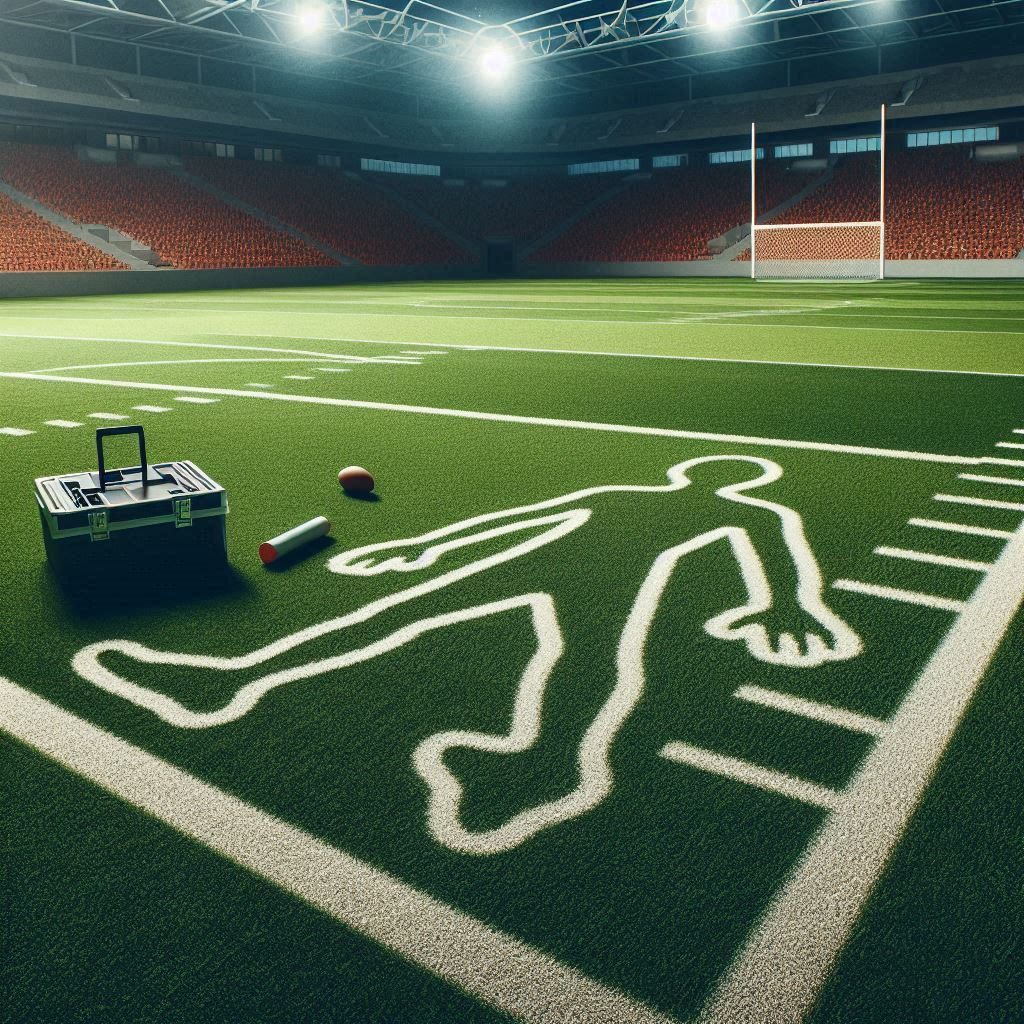Can You Get Charged For Endangerment In Sports
Legal Consequences Of Endangerment In Sports
In the world of sports & the idea of Endangerment In Sports, the line between aggressive competition and unlawful conduct can sometimes blur. This raises a critical question: If an athlete endangers another person’s life, either accidentally or intentionally, during a sporting event, can they be prosecuted? Due to the multi moving parts of every sports game the answer is not as straight forward as one might think or see.
Disclaimer
This article is intended for informational purposes only and does not constitute legal advice. Always consult with a qualified legal professional for specific legal guidance.
The Law and Sports
In general, the law recognizes that sports involve a certain level of physical contact and risk. When athletes step onto the field, they implicitly consent to the inherent risks associated with their sport. This concept is known as the doctrine of voluntary assumption of risk. However, this does not grant athletes a free pass to act recklessly or intentionally harm others and add and aspect of endangerment in sport outside the laws and rules.
Police Intervention in Sports Events
The question of police intervention during a live sports event is a complex one. It involves balancing the autonomy of the sporting world with the need to maintain public safety and uphold the law.
The Role of Police in Sports
Generally, the police do not intervene in the conduct of a sports game. The enforcement of rules and penalties within the game is typically the responsibility of the referees or officials. These individuals are trained to handle violations of the game’s rules, including severe bad tackles or other forms of unsportsmanlike conduct.
When Police Intervention May Be Necessary
However, there are circumstances where police intervention may be necessary. If an action on the field constitutes a clear violation of criminal law – such as assault or other violent crimes – the police have the authority to intervene. This is especially true if the act poses a significant risk to the safety of players, officials, or spectators.
For example, if a player intentionally injures another player in a manner that goes beyond the scope of the game and could be considered assault, the police could potentially step in. This would likely only occur in extreme cases of endangerment in sports where the conduct is clearly outside the bounds of what is acceptable in the sport.
Balancing Act
It’s a delicate balancing act. On one hand, sports must be allowed to govern themselves to maintain their integrity. On the other hand, the law must be upheld, and individuals must be protected from harm. Each situation requires careful consideration of the specific circumstances.
The police generally do not intervene in the conduct of a sports game, there are circumstances where such intervention may be necessary and justified. It’s a complex issue that requires a careful balance between the autonomy of sports and the enforcement of the law.
Accidental Endangerment
Accidents happen in sports. A mistimed tackle in football, an errant pitch in baseball, or a clumsy check in hockey can all potentially cause serious injury. But are these actions prosecutable?
Typically, if the action is within the bounds of the game and the harm was truly accidental, then legal prosecution is unlikely. Courts often consider the nature of the sport and whether the action was a reasonable part of the game. However, if an athlete’s conduct is excessively reckless or grossly negligent, they could potentially face legal consequences, even if the harm was unintentional.
Intentional Endangerment
The legal perspective changes significantly when an athlete intentionally endangers the life of another person. Deliberately harmful actions that go beyond the scope of the game, such as a premeditated attack on another player, are not protected by the doctrine of voluntary assumption of risk.
In these cases, athletes can and have been prosecuted for their actions. For example, in 2000, NHL player Marty McSorley was convicted of assault with a weapon after striking an opponent in the head with his stick, a clear violation of the rules and standards of conduct in hockey.
Coach’s Call and Responsibility
The role of a coach in sports is pivotal. They are responsible for strategy, player development, and decision-making. But what happens when a coach makes a bad call? Who bears the responsibility – the player who acted on it or the coach who made the call?
In most cases, the responsibility lies with both parties, but in different ways.
Player’s Responsibility
Players are expected to follow their coach’s instructions. If a coach makes a call and a player acts on it, the player is generally not held legally responsible for the outcome, provided they acted within the rules of the game. However, if the player’s actions based on the coach’s call result in an illegal move or unsportsmanlike conduct, the player may face penalties according to the rules of the sport.
Coach’s Responsibility
On the other hand, coaches have a duty of care towards their players. If a coach’s call is reckless or endangers a player’s safety, the coach could potentially be held legally responsible. For example, if a coach instructs a player to commit an act that is clearly against the rules and someone gets hurt, the coach could be liable for any harm that results.
Moreover, coaches can also face consequences within the sporting world. They can be penalized by their sporting body, which can include fines, suspensions, or even being banned from coaching.
The Intersection of Sports and Law
Determining where the scope of a game ends and the law begins can be a complex task. There is no definitive line that separates the two, but rather a gray area where sports and law intersect.
The Scope of a Game
The scope of a game is generally defined by the rules and regulations of the sport. These rules are enforced by referees or officials during the game, and disciplinary actions for breaking these rules are typically handled within the sporting organization. This can include penalties during the game for endangerment in sports, suspensions, fines, or other sanctions.
The Role of Law
The law steps in when actions in a sports game go beyond the accepted rules and norms of the game and enter the realm of illegal activity. This can include actions that are intentionally harmful, excessively violent, or that endanger the safety of others. In these cases, athletes can be held legally accountable for their actions.
The Gray Area
The gray area between the scope of a game and the law is where things get complicated. For example, what happens when a player’s aggressive behavior is within the rules of the game but still results in injury to another player? Or when a player’s actions are technically within the rules but are conducted with the intent to harm?
In these cases, the context of endangerment in sports is crucial on what happened and how significant the act was. Courts will often consider factors such as the nature of the sport, the level of consent and understanding of risk among the players, and the intent behind the player’s actions.
Conclusion
Sports involve inherent risks, athletes are not immune from legal consequences if their actions endanger the life of another person. Accidental harm resulting from normal gameplay is typically not prosecutable, but excessively reckless behavior or intentional harm can lead to legal repercussions.
Can You Get Charged For Endangerment In Sports is a wide open and ever changing topic of time, culture and what the rules are.
It’s important for athletes, coaches, and fans to remember that while sports can be highly competitive, they should also be conducted in a manner that respects the safety and well-being of all participants.
There is no definitive line that separates the scope of a game from the law. Instead, there is a complex interplay between the two, with each case requiring careful consideration of the specific circumstances involved. It’s a delicate balance that underscores the importance of sportsmanship, fair play, and respect for the safety and well-being of all participants.
Join the Discussion
We hope this article has provided some insight into the complex intersection of sports and law. We invite you to join the discussion and share your thoughts.
Do you think the current balance between sports rules and legal intervention is appropriate?
Have you witnessed a situation where you felt the law should have intervened in a sports game?
How do you think sports organizations can better ensure the safety and well-being of their athletes?
Please remember to keep the discussion respectful and constructive on the idea of engagement in sports. We look forward to hearing your thoughts!
#SportsLaw #LegalInSports #AthleteSafety #SportsAndLaw #SportsRules #LegalIntervention #SportsDiscussion #SportsEthics #PlayerResponsibility #CoachResponsibility #SportsProsecution #EndangermentInSports #SportsConduct #FairPlay #RespectInSports #SportsPenalties #SportsInjuries #LegalAccountability #SportsRegulations #AthleteRights #SportsJustice #GameRules #LawInSports #SportsDebate #Sportsmanship #LegalRights #AthleteProtection #SportsLiability #LegalAspectsOfSports #SportsAndJustice






Its like you read my mind! You appear to know a lot about this, like you wrote the book in it or something. I think that you could do with a few pics to drive the message home a little bit, but other than that, this is wonderful blog. A fantastic read. I’ll definitely be back.